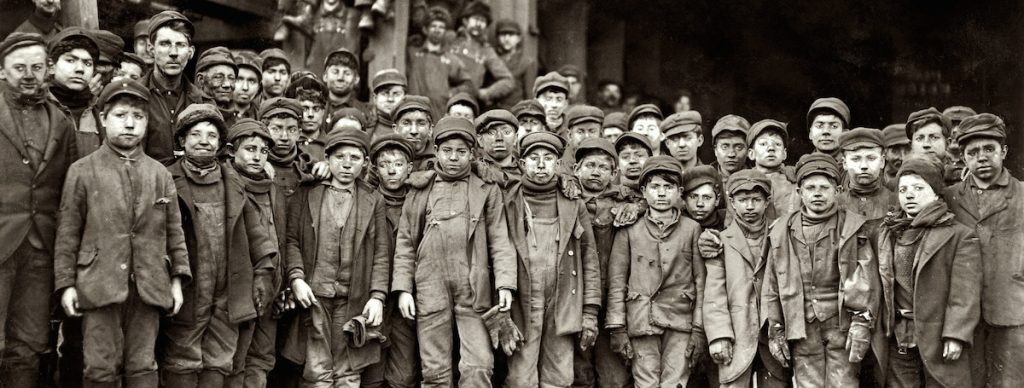
Domesticating Man: Ethnocide during the Agricultural & Industrial ‘revolutions.’
Part 1. The French Bastard, and the birth of Globalisation.
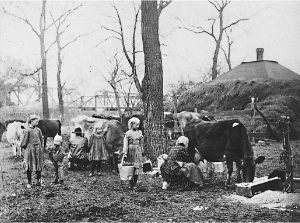 Only a few hundred years ago, to work for a wage was considered demeaning, because you were a dependent, unable to provide directly for your own needs. In other words, your family-community was not allowed enough land to be self-sufficient in terms of food, fuel, etc; and make no mistake, this was the only way to get people to be ‘industrious’ – the threat of starvation.
Only a few hundred years ago, to work for a wage was considered demeaning, because you were a dependent, unable to provide directly for your own needs. In other words, your family-community was not allowed enough land to be self-sufficient in terms of food, fuel, etc; and make no mistake, this was the only way to get people to be ‘industrious’ – the threat of starvation.
The agricultural and industrial ‘revolutions’ were nothing to do with ‘new’ technology, nor were they intended to increase productive output (which they drastically decreased in real-terms) – they were instead crude acts of political warfare, designed to undermine self-sufficient rural economies and self-reliant communities, and thereby turning free and independent folk into ‘workers’ (i.e. wage slaves), a title which many still proudly hang around their own necks.
“In the past, if anyone called a tradesman a worker, he risked a brawl. Today, when they are told that workers are what is best in the state, they all insist on being workers.”
~ M. Mav. 1948.
To the would-be rulers of the new ‘industrialised’ world-order, success or failure hinged on the ability of government policy to protect unlawful land-grabs by unscrupulous land-owners and to ignore the violations of law involved in the violent eviction of families, indeed whole communities from lands which they had traditionally managed, in some cases for millennia. Historians refer to this process as ‘The Clearances’ and many academics today still cite various cynical justifications, the most common of which is “the tragedy of the commons” – an absurd and farcical theory, which has long been debunked and which has now been rejected, even by the academic who originally penned it. We’ll come back to and explore that particular tragedy of academia later on.
Perhaps unsurprisingly, there was very little in the way of opposition from the judiciary, who were for the most part cut from the same cloth as the land-grabbers themselves. Though, it must be said there was some resistance in the form of at least one renegade judge, and even a little from the monarchy, when it suit them. Henry VIII and later Charles the 1st and his loyal royalist aristocracts, both mounted some opposition. Though Charles 1st’s rebellion came far to late and he lost his head as a consequence. If we were to be cynical, as history often demands, we would see both cases of Royal opposition to ‘depopulation’ merely as attempts to protect the royal power base, rooted in landed aristocracy and thus intimately tied-up with the control of land – rather than gold and finance, as was the case with their up-and-coming competitors, the European merchant-class. Although it barely deserves mentioning, ethnic cleansing was always in clear violation of the ancient common-law of Tort, ‘cause no injury, harm or loss’.
“the encloser who kept a shepherd and dog in place of a flourishing village community was hateful to God and man.’” ~ 1620 Sir Edward Coke ‘greatest of English judges’, and a keen opponent of enclosure, declared depopulation against the laws of the realm.
To the early industrialists, however, it was the express intention of enclosure and ‘clearance’ to undermine the traditional land management practices which had kept rural communities fed since time-immemorial. To strike at the very foundations of self-sufficient agrarian economies and in-so-doing, to generate a mass of uprooted dependents, stripped of their ethno-cultural complexities (values, beliefs, moralities) as well as the practical knowledge and traditions, which had previously given rural communities their economic vitality and the people a spirit of independence and self-reliance. The dispossessed peasantry, and their children would thereby be rendered ripe for exploitation in the mines, or the ‘satanic mills’ of the early textile industry, or as flesh for the meat-grinder of imperialist wars at home (against unruly peripheral communities) or abroad (against the empire’s newly acquired colonies).
‘Lazy peasants’ v.s. ‘productive workers’…
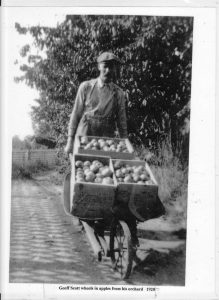
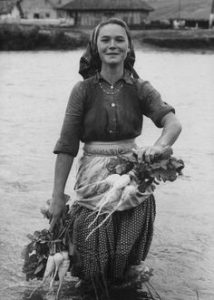
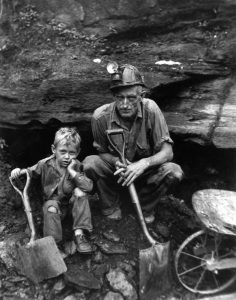
The veil has been lifted and what was once written down in books intended for ‘High Society’ circulation only, is now available for all to see. The reality which is increasingly coming into view is one in which the enclosures and clearances, which stole both land and dignity from the people of the British Isles, are being revealed as part of a targeted and ruthless campaign of human domestication, and of ethnocide – the destruction of a people’s culture and way of life.
The intended effect was precisely the result: the complete dispossession of the ‘common folk’ (i.e. anyone who wasn’t a Latin speaking Norman aristocrat) of their ancestral lands and rights, by the descendants of those whom Thomas Paine would later call the “French bastard and his armed banditti,” being William the Bastard-Conqueror and his mercenary army. It is critically important, perhaps even more so today, that this moment of history be studied and recognised for what it is. For it is nothing less than the birth of the so-called ‘British’ empire, which would later evolve into the model of ‘globalisation’ which was exported across the globe, devastating the Earth’s ecological and ethnic complexity wherever it went.
Prior to 1066, and the centuries of enclosure and clearances which followed, the inhabitants of the British Isles had been the custodians of a rich tradition of communal land management, customary folk-laws and practices which stretched back into the ancient oral-traditions of prehistory. These cultural and folkloric land rights and management techniques gave rise to economic self-sufficiency at the village level, fostering a spirit of self-reliance which walked hand-in-hand with an intimate knowledge of the land, its plants and animals. This knowledge was a commonality, shared by agrarian communities across not just the British Isles, but the entire pre-industrialised world. Intimacy with the land, with the ecology, is today, as it was then, the only way human economies and communities can achieve ecological harmony. The key indicator of economic ‘sustainability’ is regional self-sufficiency, economies of scale in which there are no externalities; no ‘other’ to parasitise, nor upon which to offset your inefficiencies (waste, ecological degradation, exploitative labour practices).
“When a labourer becomes possessed of more land than he and his family can cultivate in the evenings… the farmer can no longer depend on him for constant work.” ~ A snippet from Commercial, Agricultural, and Manufactures’ Magazine in 1800.
 This kind of economic independence was antithetical to the industrialists and their plans for human domestication. How could the peasantry be brought to heel if they all wanted for nothing, having the means and the knowledge to provide for themselves – rather than for their would-be owners. This is why the industrialisation process, on-going today in many parts of the world, is wholly dependent upon taking away people’s ability to feed themselves. The early industrialists of the British Isles and their supporters in both government and the clergy, knew that the enclosures were to bring about conditions which would lead to starvation, indeed, that was their intention and they spoke about it very candidly…
This kind of economic independence was antithetical to the industrialists and their plans for human domestication. How could the peasantry be brought to heel if they all wanted for nothing, having the means and the knowledge to provide for themselves – rather than for their would-be owners. This is why the industrialisation process, on-going today in many parts of the world, is wholly dependent upon taking away people’s ability to feed themselves. The early industrialists of the British Isles and their supporters in both government and the clergy, knew that the enclosures were to bring about conditions which would lead to starvation, indeed, that was their intention and they spoke about it very candidly…
“Hunger is not only a peaceable, silent, unremitted pressure, but as the most natural motive to industry, it calls forth the most powerful exertions. . . . Hunger will tame the fiercest animals, it will teach decency and civility, obedience and subjugation to the most brutish, the most obstinate, and the most perverse.” ~ Reverend Joseph Townsend.
Self-sufficient homes produce independent-minded folks who in turn tend to form strong and independent communities with their neighbours and extended families. Helping to forge a spirit of co-operation and building strong local economies by cycling resources and opportunities within the regional community, in which everyone benefits. Producer-led markets and supply networks reduce people’s dependency on imports from elsewhere and instead re-cycle wealth into local industries. Reciprocal economical structures create closed-loops, leading to greater economic and consequentially cultural and political independence, distributing resources and building-up wealth locally, rather than concentrating it into the hands of foreign (outside the area) monopoly owners. Land access and distribution is key to this process – for land is the means and measure of life, and access thereto is all one needs to be economically self-sufficient and at the community level, to be politically independent (free).

That is why the economic ‘wisdom’ of the oligarchs has been to undermine self-sufficient rural communities at all costs…
“Our Forests and great Commons make the Poor that are upon them too much like the Indians being a hindrance to Industry, and are Nurseries of Idleness and Insolence. ” ~ John Bellows, a famous Quaker and ‘philanthropist’ in 1714. *Insolence: late 14c., “contemptuous, arrogant”, from Latin insolentem “arrogant, unaccustomed, unwonted” literally “unusual, unfamiliar”.
Agricultural monopolisation, and later industrialisation required its beneficiaries to reign-in the wild temperaments of independent minded rural folk. To make people dependent on their emerging economic model, and thus appreciative of their charity and ‘good grace’ (scraps from their table) they systematically undermined the ‘customs, rights and traditions’ of the native populations of the British Isles, namely the descendants of the ‘Anglo-Saxon’ and Brythonic tribes. This then allowed the Norman, latinised ‘lords’ to plunder and steal natural resources on an unprecedented scale: woodlands, water-courses, fishing and hunting rights, fields and minerals, which were all previously held in communal-management, through various forms of common-law and customary or ‘folkloric’ rights – many of which had long established histories stretching back hundreds, in some cases thousands of years into the mists of time.
The possession of a cow or two, a hog, and a few geese, naturally exalts the peasant. In sauntering after his cattle, he acquires a habit of *indolence. Quarter, half, and occasionally whole days, are imperceptibly lost. Day (wage) labour becomes disgusting; the aversion increases by indulgence. ~ from an 18th century pro-enclosure pamphlet.
* Indolence: French (16c) “freedom from pain”.
Of course, the owners of this new economic model also coveted the time and labor of the people they had dispossessed. What stood in their way was precisely the same independent industries and self-sufficient land-based livelihoods which had kept rural economies alive, as intact wholes, independent of outside influence in the form of monarchical and later government sponsored monopolies and the fiat currency of usurious financiers. Poverty then, more than now, was understood to be the direct result of establishing the economic (land) monopolies, and both were essential prerequisites of industrialisation.
“Everyone but an idiot knows that the lower classes must be kept poor, or they will never be industrious.” ~ Arthur Young, ‘top economist’ of his day, 1771.
The 1671 Game Act made it illegal to hunt wild animals, considered a common right since time immemorial. Hunting, in what must be said was a heavily forested and plentiful habitat as compared to the landscape of the British Isles today, offered a dependable source of nutrition for those whom the farming season and animal husbandry had failed. These Acts made it illegal even for farmers to protect their crops from rabbits, and other animals. Forcing many to decide between starvation, and pursuits which though well entrenched in custom, rights and tradition, had recently been classed as ‘criminal activities’ – by people who did not even speak the same language as the vast majority of the population. Whether or not your average British peasant was even aware of the Acts did not stop them from being hanged en-mass. As the entire judicial system conducted its affairs in Latin, your average commoner had no chance of appeal, and not even the slightest pretense of justice.
By 1700 half all arable lands in the British Isles were enclosed, that is taken out of communal management. It should be noted, by those who cite ‘sustainability’ and environmental arguments against communal land management, that there was a surprising amount of continuity, in ‘open field systems’ from the fourth millennium BC, right up until the Norman invasion. This means that for five thousand years, communal land management systems thrived. That the communal management of specific fields has been shown to have originated centuries, and often millennia before the Anglo-Saxon era. So, clearly, this model of distributed land management, in which the community held ‘common-rights’ to farm has proven itself more than capable of being sustainable. What else then, could be the reason for promoting the contrived hardship and poverty which so clearly resulted from the enclosures and clearances?
“Poverty is therefore a most necessary and indispensable ingredient in society. It is the source of wealth, since without poverty, there could be no labour; there could be no riches… no benefit to those who may be possessed of wealth.” ~ Patrick Colquhoun (1745 – 1820) enclosure supporter and founder of the first police force.
Rights to forage, hunt, farm and to build dwellings upon the commons were revoked. The Black Acts led to the mass hanging of desperate poachers, who broke these laws, often in a bid to feed their starving families after the confiscation of their lands and smallholdings and the impounding of their animals. Between 1790 and 1830 a third of the Britain’s rural population migrated to urban slums, where they were put to work in factories, and workhouses called by Blake the “Satanic Mills” of modernity, this was the beginning of what would come to be known, even celebrated, as the ‘Industrial Revolution’. By 1815 nearly all farm land in England was was enclosed, and hunting, grazing and gleaning rights all but lost.
To bring this into modern times…
If we look at the ‘development strategies,’ as used by the United Nations, the U.S. and their networks of NGO’s, charities and development funds, forces often referred to simply as ‘globalism’, we can draw comparisons between them and model of ‘industrialisation’ first developed and unleashed in all its “unmitigated brutality” upon the peasantry of the British Isles. If we look at the processes still being using today to ‘industrialise’ self-sufficient rural communities and their lands abroad, we can see that there is always a significant cultural component to this process. It’s one thing to physically destroy a people’s way of life, but quite another to make them internalise this process, and help to justify the physical and cultural dispossession of their own land and people, the erosion of their own stories, traditions and ways-of-life.
“It was the sad fate of the English poor to be the first to be subjected to the unmitigated brutality of this developing social mechanism. It goes without saying that they considered this fate an absolute degradation, and those who accepted it were scorned by their peers. At the time of the Levellers, it was already commonly considered that those who sold their labor for a salary had abandoned all the rights of “free-born Englishmen.” ~ Leopold Roc, Industrial Domestication.
Colonisers often claim to offer improvement, or to be acting in the best interests of those they wish to subject to their all-encompassing vision of ‘progress’, in this way imperialism seeks to disguise itself as a ‘moral crusade’. Today, that crusade is intimately entangled with technological development. ‘Cultural development’ i.e. ethnocide, the destruction of a people’s culture and ‘way-of-life’ is understood to be an inseparable part of all (globalist) economic development programs; which, for example, take self-sufficient peasant communities, or nomadic pastoralists and ‘educate’ them about engineering, computers and thus how to fit into the ‘new world’ in which the lucky ones will function as slaves, working 14 hour days in factories for high-tech industries, the arrival of which coincides, coincidentally enough, with the push for ‘education’. It should come as no surprise that the ‘schools’ are often sponsored by the exact same corporations and globalist institutions which just so happen to be encircling their lands and resources, as well as slaughtering anyone who dares to fights back.
Temple advocated putting four-year-old kids to work in the factories, “for by these means, we hope that the rising generation will be so habituated to constant employment that it would at length prove agreeable and entertaining to them.’’ ~ Sir William Temple, a politician and Jonathan Swift’s boss, who suggested that food be taxed as much as possible to prevent the working class from a life of “sloth and debauchery.”
End of Part 1.